Panel Session 1
Future-Proofing Low-Carbon Power Grids: Innovations in Prediction, Modeling, and Control
Chairs:Yuechuan Tao, City University of Hong Kong, China
Jiaqi Ruan, Sichuan University, China
Xianzhuo Sun, The Hong Kong Polytechnic University, Hong Kong, China
Speakers:
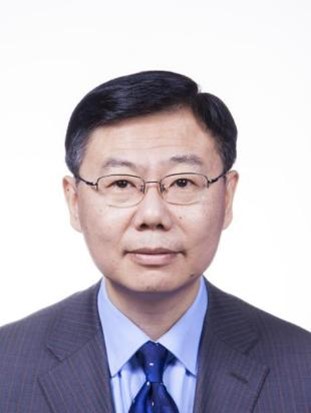
Prof. Pei Zhang, Tianjin University, China
Speech Title: Real-time Coupling Relationship between Electric Power and CO2 Emissions in Coal-fired Power Plants based on Newton's Paradigm and Kepler's Paradigm
BIO: Pei Zhang is a Professor at Tianjin University. He was Vice Dean of International School of Renewable Energy at Beijing Jiaotong University. He was the Director of Smart Grid in Resource Group of Accenture and the Program Manager leading Grid Operation and Planning group at Electric Power Research Institute (EPRI) in USA. He obtained his Ph. D. degree from Imperial College, United Kingdom. His research interests include power system operation and planning, power market and application of AI into power system. He is IEEE Fellow and AAIA Fellow. He has co-authored four books and published over 300 technical papers.
Abstract: Real-time coupling relationship between electric power and CO2 emissions in coal-fired power plants is investigated by combining Newton's Paradigm and Kepler's Paradigm. Firstly, according to the Newton's paradigm, the physical driven approach is adopted to derive the mathematical model between electric power and CO2 emissions based on the energy conversion processes of coal-fired power plants. Secondly, according to the Kepler's paradigm, the data driven approach is adopted to investigate the relationship between electric power and CO2 emissions using real-time measured data. Finally, the physical approach and data driven approach were mutually verified.
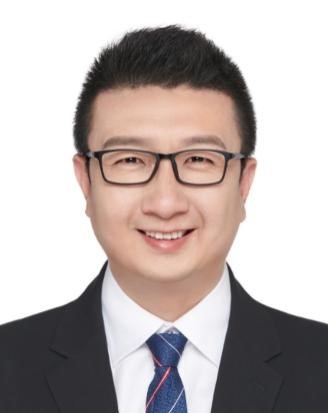
Assoc. Prof. Shi Chen, Sichuan University, China
Speech Title: The Application of AI in Optimal Dispatching and Control of New Power System
BIO: Shi Chen (Member, IEEE) received the B.S. and Ph.D. degrees in electrical engineering from Sichuan University, Chengdu, China, in 2000 and 2014, respectively. Since 2003, he has been with the College of Electrical Engineering, Sichuan University, where he has been an Associate Professor since 2017. His research interests include artificial intelligence and optimization in stability, operation, and planning of power and hydrogen energy systems. Serving as a director of the Grid Operation and Control Technology Subcommittee of the Power System Protection and Control Technology Committee of IEEE PES China, and as the Secretary of the IEEE PES China Education Committee.
Abstract: With the rapid development of the new generation of AI technologies, the advantages of data-driven approaches in feature extraction, modeling, and optimized decision-making for complex nonlinear objects have become increasingly prominent. The new power system is a typical large-scale and complex system, and its volatility and uncertainty have brought great difficulties to the precise modeling and operational decision-making of the system. Attempts to apply the new generation of artificial intelligence technologies are expected to address the challenges in the modeling, operation, and control of the new power system.
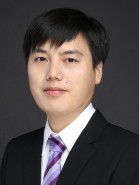
Prof. Can Wan, Zhejiang University, China
Speech Title: Uncertainty Analysis of Renewable Energy Power System Operation Driven by Data-Model Fusion
BIO: Wan Can received his B.Eng. degree in Automation from Zhejiang University in 2008, and Ph.D. degree in Electrical Engineering from the Hong Kong Polytechnic University in 2015. From 2015 to 2017, he was a Postdoctoral Research Fellow at Tsinghua University. In 2017, he joined the College of Electrical Engineering, Zhejiang University as a tenure-track Professor under the university Hundred Talents Program. He held research or visiting positions at the Hong Kong Polytechnic University, City University of Hong Kong, Technical University of Denmark, and Argonne National Laboratory, Lemont, IL, USA. His research work focuses on the energy forecasting technology, multi-energy systems, renewable energy, and active distribution networks. He has published over 60 papers in top-notch international journals and conferences (over 30 IEEE PES Trans. papers), including over 30 first-author/corresponding-author SCI journal papers. His research works have been widely cited by renowned scholars (including more than 80 Fellows of US National Academy of Engineering, IEEE Fellows, etc.). His 3 first-author papers published on IEEE Trans. Power Systems have been selected as ESI Highly Cited Papers. Dr. Wan won the first-class award in Natural Science of Higher Education Outstanding Scientific Research Output Awards from the Ministry of Education (MoE) in 2017. He was among the first batch of Hong Kong PhD Fellowship awardees. He serves as Associate Editor of IEEE Systems Journal and CSEE Journal of Power and Energy Systems.
Abstract: The integration of renewable energy sources (RES) into power systems introduces significant challenges due to the inherent uncertainty of renewable generation. This paper presents a comprehensive approach to uncertainty analysis in renewable energy power system operations, driven by the fusion of data and models. By leveraging real-time data from smart grids and advanced forecasting models, the proposed methodology enhances the prediction accuracy of renewable generation and demand fluctuations. The data-model fusion framework integrates probabilistic forecasting with optimization techniques, enabling more resilient and efficient decision-making for power system operators. Key focus areas include uncertainty quantification, risk assessment, and robust operational strategies under varying levels of renewable energy penetration. The results demonstrate the effectiveness of the proposed approach in reducing operational risks and improving system reliability, offering valuable insights for future energy system design and management.
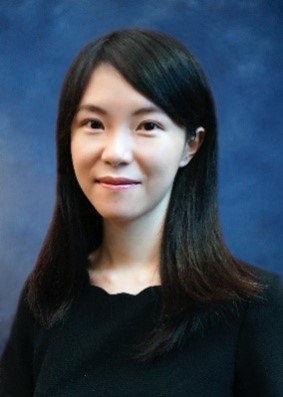
Vice-Chancellor Assist. Prof. Yue Chen, The Chinese University of Hong Kong, China
Speech Title: Predict-and-Optimize Robust Unit Commitment with Statistical Guarantees via Weight Combination
BIO: Yue Chen is a Vice-Chancellor Assistant Professor in the Department of Mechanical and Automation Engineering at The Chinese University of Hong Kong (CUHK). Prior to joining CUHK, she received the B.E. and Ph.D. degrees in Electrical Engineering from Tsinghua University in 2015 and 2020, respectively, and the B.S. degree in Economics from Peking University in 2017. Her research interests include game theory and trustworthy AI, with applications to electricity markets and cyber-physical-social systems. She has received multiple awards, including the Vice-Chancellor Early Career Professorship, the Dean’s Exemplary Teaching Award, the Stanford Bits & Watts Postdoc Fellowship, the Excellent Ph.D. Thesis Award of Tsinghua, and the Best Reviewer Award of many international journals. Dr. Chen serves as an Associate Editor for IEEE Transactions on Smart Grid. She is the Hong Kong Chapter Representative of IEEE PES Women in Power.
Abstract: The growing uncertainty from renewable power and electricity demand brings significant challenges to unit commitment (UC). While various advanced forecasting and optimization methods have been developed to predict better and address this uncertainty, most previous studies treat forecasting and optimization as separate tasks. This separation can lead to suboptimal results due to misalignment between the objectives of the two tasks. To overcome this challenge, we propose a robust UC framework that integrates the forecasting and optimization processes while ensuring statistical guarantees. In the forecasting stage, we combine multiple predictions derived from diverse data sources and methodologies for an improved prediction, aiming to optimize the UC performance. In the optimization stage, the combined prediction is used to construct an uncertainty set with statistical guarantees, based on which the robust UC model is formulated. The optimal robust UC solution provides feedback to refine the forecasting process, forming a closed loop. To solve the proposed integrated forecasting-optimization framework efficiently and effectively, we develop a neural network-based surrogate model for acceleration and introduce a reshaping method for the uncertainty set based on the optimization result to reduce conservativeness.
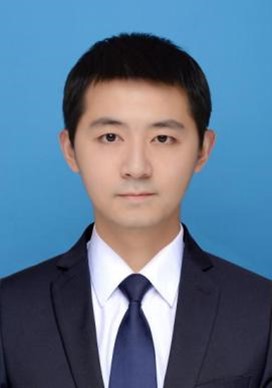
Assoc. Prof. Junru Chen, Xinjiang University, China
Speech Title: Grid-forming Converter: Assessment, Siting, configuration and its implementation in Xinjiang
BIO: Junru Chen, received the Ph.D. in 2019 and the ME Electrical Energy Engineering in 2016 from University College Dublin, Dublin, Ireland. He was a Senior Researcher in University College Dublin and visiting scholar in Aalborg University, Denmark in 2020. He was a visiting doctoral student in Kiel University, Germany in 2018 and Tallinn University of Technology, Estonia, in 2019. Since 2020 he is an Associate Professor at Xinjiang University, China. His current research interests include power electronics control, modeling, stability and application.
Abstract: With the significant increase of renewable energy sources in the power grid, system inertia and damping are greatly reduced, leading to challenges in grid stability. Grid-Forming Energy Storage System (GFM-ESS) is considered essential for improving the system stability and performance because it has control response characteristics in the same manner as Synchronous Generation (SG). To fully explore the advantages of GFM-ESSs in power systems, it is crucial to consider their optimal deployment. This talk introduces a strategy for optimizing GFM-ESS site selection, addressing both device itself and the system stability statically and dynamically.ion and introduce a reshaping method for the uncertainty set based on the optimization result to reduce conservativeness.
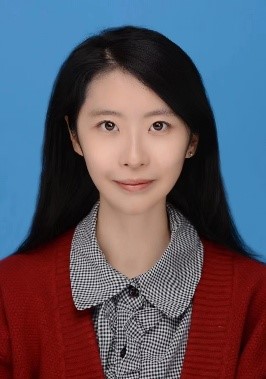
Assoc. Prof. Muyang Liu, Xinjiang University, China
Speech Title: Hierarchy Inertia Estimation for New Power System in Xinjiang
BIO: Dr. Muyang Liu is an Associate Professor and doctoral supervisor at the School of Electrical Engineering, Xinjiang University. She has been selected into the Chinese National Overseas High-Level Talents Program in 2022. Her research interesting is multi-time scale modeling and simulation techniques of modern power systems, the on-line monitoring, control and operation of modern power systems. She pursued her doctoral degree at University College Dublin, Ireland, from 2016 to 2019. She has won the IEEE PES GM Best Paper Award in 2019 and was selected for the Next Generation in Power System Forum. She has published more than 40 SCI/EI-indexed papers, including 2 ESI hot papers, with over 1500 peer citations.
Abstract: Virtual inertia provided by the control of power electronic control is reckoned as one of the solutions to maintain the frequency security and stability of the low-inertia power system with high penetrations of renewables and power electronics. However, whether and how the power-electronic virtual inertia response can regulate the lowest requirement of the power system rotational inertia are not well-solved yet. This report concerns on the rotational inertia, as well as the virtual inertia that may replace the rotational inertia needing of the power system by providing first-aid frequency support and maintaining the frequency security and stability. This report explains the on-line estimation method for the inertial support ability of the new power system of Xinjiang, to obtain the real-time information of the fast frequency support for the accurate assessment of the synthetic inertial level for the typical sending-end new power system.
